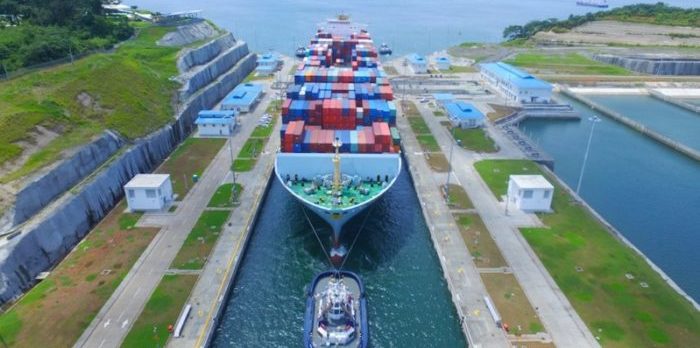The UK’s Ministry of Defence has launched a report, presenting the threats that climate change poses both for the shipping industry and trade routes. Namely, the report says that shipping will be among the sector that will be hit the hardest by climate change, as trade routes could be disrupted due to extreme weather.
According to the report, temperature will rise about 2.3° Celsius and 3.5° Celsius by 2100, even if the world manages to meet the goals of the Paris Agreement. This will led to more frequent extreme weather events in the future, such as floods, droughts, storms and heatwaves.
Panama canal could be affected
As the temperature is rising, these events will appear more frequently. Floods and storms are likely to severely affect key trade routes, such as the Panama canal, impact the global market. This could lead to shortages in some crops, in addition to migration and more conflicts, as people would try to find safer places to live.
Trade and shipping will experience the consequences
It goes without saying that if such key trade routes are disrupted, shipping would be affected as well. Specifically, the report notes that with the inland waterways impacted, the cost of shipping on the North American Great Lakes could go up by 9% by 2050.
[smlsubform prepend=”GET THE SAFETY4SEA IN YOUR INBOX!” showname=false emailtxt=”” emailholder=”Enter your email address” showsubmit=true submittxt=”Submit” jsthanks=false thankyou=”Thank you for subscribing to our mailing list”]
Nevertheless, by 2050 shipments of raw materials could double to Western economies and quadruple to other regions, while the global freight trade is possible to grow between 330-380%.
What is more, technology will decrease the cost of shipping using crewless container ships (i.e Yara Birkeland), which could be operational by 2020. In addition, the melting of polar ice will provide shorter sea routes through the Arctic.
But these will not come without a cost. Extreme weather are expected to:
- Increase the frequency of port closures;
- Reduce the speed of passage;
- Require routes to be changed;
- Harm infrastructure and disrupt major trade routes.
Water conflicts
With sea experiencing such changes, combined with ineffective governance, the use of water in many parts of the world will be unsustainable. Taking into consideration the effects of climate change as well, the reports notes that tensions are likely to increase, possibly leading to conflicts.
Impact to biodiversity
All these changes that the climate change will bring, will affect the world’s biodiversity. In fact, already the damage to ecosystems between 1997 and 2011 has costed about US $4.3 – 20.2 trillion. This number is expected to increase significantly in the coming decades.
IMO needs to adapt to the changes
Shipping’s regulatory body, IMO, will need to take serious consideration of these issues and find ways to deal with them. Namely, IMO would have to alter regulations regarding technology, automated shipping and new energy efficient ways of propulsion.
You can see more information on UK’s Ministry of Defence report: Global Strategic Trends – The Future Starts Today






























































